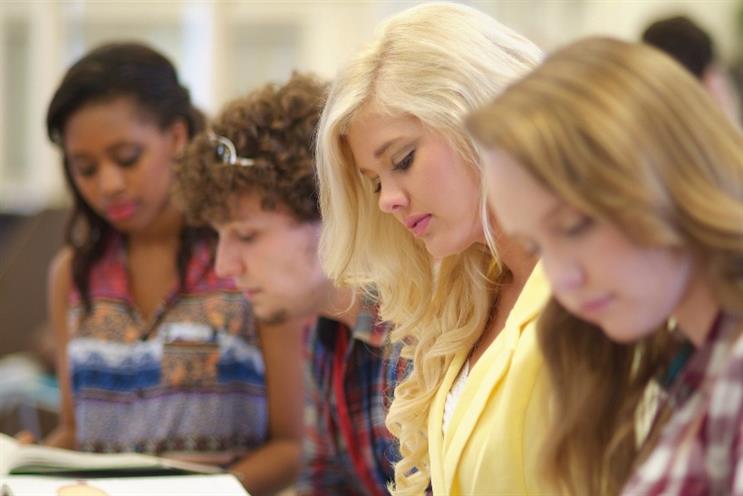
Students are incredibly important to businesses – 996,000 new students joined higher education this year, contributing to an overall student population of 2.3m. Research from the NUS indicates that this group supports £80bn of UK economic output, with the typical student spending £9.2k a year on living expenses, excluding accommodation.
The university experience sees young people making decisions about brands that often last a lifetime
However, that doesn’t tell the full story. It doesn’t help us understand how and why students make decisions. It is important to know just 51 days into university, on November the 20th, the average student will have used up their loan. It is also important to know that 59% of students say that their purchasing decisions are mostly influenced by their friends, with 75% of respondents telling us that going to University has influenced the way that they dress so they ‘fit in’.
At UCAS Media we decided to study this year’s intake to help brands need understand how young people transitioning to university engage with the products and services they need and want. We noticed three key phases in the emotional and purchasing journey of students.
Stage One: Celebration
There is a noticeable trend in the first week after having a place confirmed where students, quite naturally, feel an overriding sense of relief. In terms of purchasing, this manifests itself in a need to reaffirm their success as they make tactical and easy purchasing decisions. It’s about proving they are on their way, so they buy stuff for their room. In fact, our study revealed that 75% of respondents purchased all the essentials before they started and spent an average of £117 on room accessories before university even started.
At this point, it’s worth factoring in the parents too – 76% of parents were more likely to pay for kitchen items with an average spend of £118. It’s also the biggest purchasing regret however so for brands, giving advice to this effect, or packaging up the bare essentials is a good tactic.
Stage Two: Preparation
After week one, bigger decisions need to be made. During the next eight week period they draw on external influencers to help them – but different behaviours begin to emerge. One thing that we see consistently is a concern around price.
The average spend in Fresher’s Week reaches £286. They are buying alcohol, food, toiletries, clothes, books – and even spending on travel home
76% are worried about living expenses, however, how they find deals differs greatly. We see some students putting a lot of time and energy into researching the best deals on bank accounts for example, and going in store to find deals. However, one of our students commented "I’m rather ashamed to admit that I did zero research. After results day, I was sent an email by my bank to turn my Young Person’s Account into a Student Saver Account…and let’s face it, when it’s that easy – why not?".
Phones are also on the agenda, but the tariff is only important to about 26% of respondents, with having the latest tech coming up higher. 59% also buy in store after speaking to an adviser. It’s something worth noting – we consistently see a trend towards going in store, with young people wanting to make decisions themselves, but being unsure so seeking external advice. 41% also buy a new laptop in the year they started uni, but research comes back in again with respondents saying they needed it to last, but searched extensively for the best deal.
Stage Three: Realisation
Finally, they are there. Moving home, making new friends, living in a new area, budgeting and managing their own lives… these factors all now influence their purchasing decisions. It becomes about fitting in, with 67% of male respondents planning to buy new clothes for uni. In fact, the average spend in Fresher’s Week reaches £286. They are buying alcohol, food, toiletries, clothes, books – and even spending on travel, scheduling that all important first trip home.
But this is also when reality sets in: 67% of those we surveyed had £8 spare a day after accommodation and bills had been paid. Hence running out 51 days in. Our panellists noticeably changed their buying behaviour within weeks of starting uni, from brands to own brands as they began to budget. If you’re a premium or budget brand it is worth bearing this timelines in mind, as behaviour begins to change throughout the term.
Needless to say they’ll all be heading home to be well fed by Mum and Dad over Christmas, but the important takeaway for brands is that the university experience also sees young people making decisions about brands that often last a lifetime.
By understanding them, and offering them advice and deals they need at the time they need them, marketers can stand to make the most of this huge opportunity to build their customer base of the future.


.jpg)


.jpg)